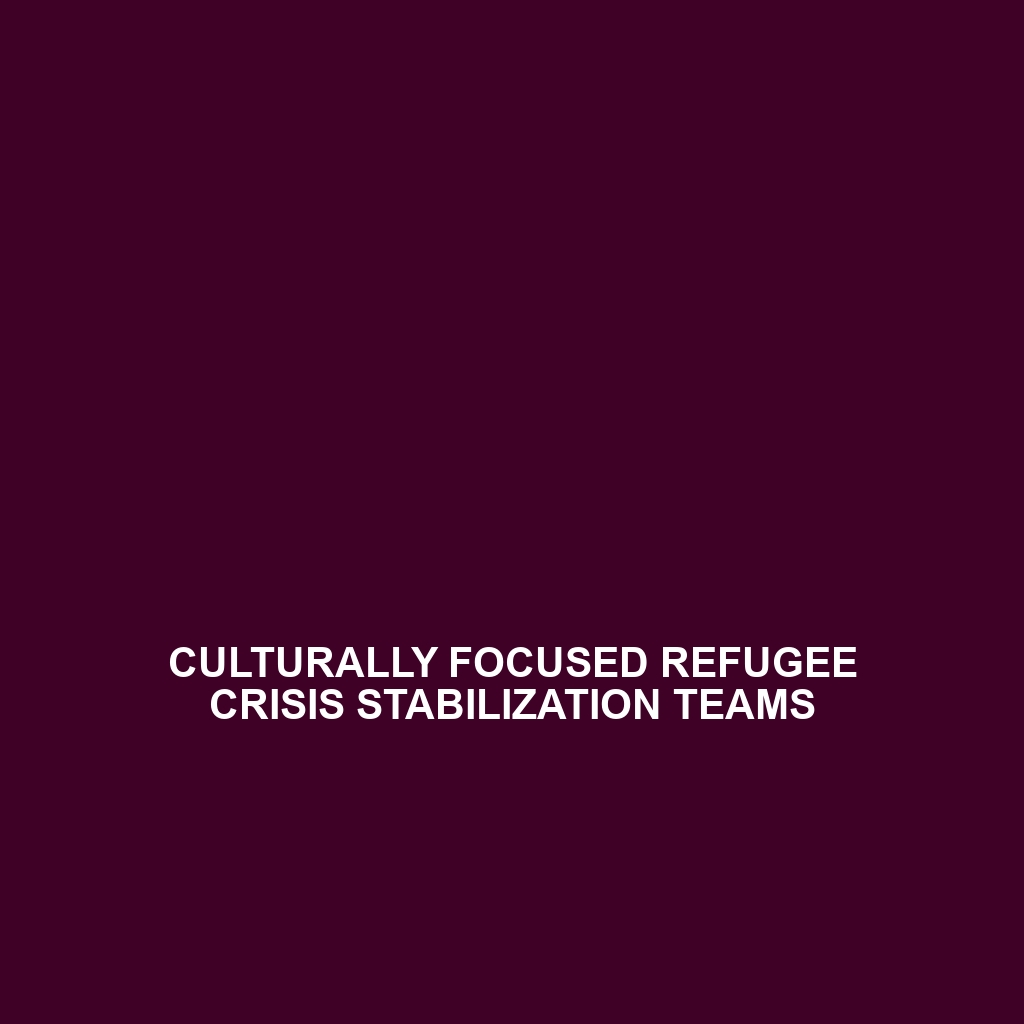Culturally Adapted Crisis Networks: A Comprehensive Mental Health Service
Overview
The Culturally Adapted Crisis Networks (CACN) is a pioneering mental health service designed to provide culturally relevant and compassionate support to individuals facing mental health crises. Recognizing the diverse cultural backgrounds of individuals experiencing psychological distress, CACN employs a tailored approach that respects the unique values, traditions, and communication styles of various communities. The primary aim of this service is to bridge the gap in mental health care by offering sensitive, effective, and timely interventions that promote healing and well-being.
In a world where mental health issues are on the rise, particularly among marginalized communities, CACN stands out by integrating culturally competent care into its framework. This service is not just about addressing mental health crises; it’s about fostering a safe space where individuals feel understood, respected, and empowered to seek help. By collaborating with local communities and incorporating their insights and traditional practices, CACN enhances the effectiveness of mental health interventions and promotes holistic recovery.
How It Works
The functioning of Culturally Adapted Crisis Networks is grounded in several key methodologies that prioritize cultural relevance and community engagement. The service operates through a multi-faceted approach that includes:
- Community Involvement: CACN engages with local community leaders and organizations to understand the specific cultural needs of the populations served. This collaboration ensures that the interventions are not only appropriate but also resonate on a deeper level with individuals in crisis.
- Trained Professionals: The network is composed of mental health professionals who are not only experts in their fields but also trained in cultural competence. These professionals understand the nuances of different cultural backgrounds and tailor their approaches accordingly.
- 24/7 Accessibility: CACN offers round-the-clock support through various channels, including telephone hotlines, online chat, and mobile applications. This 24/7 availability ensures that help is always at hand, guarding against the escalation of crises.
- Crisis Intervention Techniques: Utilizing evidence-based practices such as Psychological First Aid (PFA) and trauma-informed care, CACN swiftly assesses and addresses the needs of individuals in crisis. The aim is to stabilize their condition and connect them with appropriate resources.
- Follow-Up Support: After the initial crisis intervention, CACN provides continued support through follow-up services, ensuring individuals stay connected with ongoing care and community resources.
Benefits
The advantages of using the Culturally Adapted Crisis Networks are comprehensive and tailored to enhance user experience and mental health outcomes. Key benefits include:
- Culturally Relevant Care: Patients receive support that respects and integrates their cultural backgrounds, improving engagement and treatment outcomes.
- Immediate Access: With 24/7 accessibility, individuals can receive help in real-time, reducing the risk of crisis escalation.
- Qualified Personnel: Access to trained mental health professionals who are culturally competent ensures that users receive informed and compassionate care.
- Holistic Recovery Focus: The service adopts a comprehensive approach that recognizes the intersection of mental health, cultural identity, and community resources.
- Community Empowerment: By involving community members and leaders, CACN fosters a sense of belonging and support, enhancing the social fabric of the community.
Who It’s For
Culturally Adapted Crisis Networks is designed to serve a diverse audience, reaching individuals who may face barriers in traditional mental health services. The target audience includes:
- Marginalized Communities: Individuals from underrepresented populations may find traditional mental health services unapproachable or insensitive, making CACN a vital resource.
- Minority Groups: Ethnic and racial minority groups often experience cultural stigma around mental health; CACN provides a safe space for individuals to seek help without fear of judgement.
- Immigrants and Refugees: Those new to a country may struggle with the cultural differences in healthcare; CACN offers tailored resources to facilitate integration and support.
- Younger Populations: Adolescents and young adults looking for mental health support in a culturally competent manner can find the guidance they need within CACN.
- Individuals in Crisis: Anyone facing a mental health crisis can benefit from immediate, culturally-appropriate interventions, regardless of their overall condition.
Special Features
The unique aspects of the Culturally Adapted Crisis Networks distinguish it from other mental health services, providing specialized support that addresses cultural nuances. Key features include:
- Cultural Competence Training: Ongoing training programs for all staff ensure that they remain informed and sensitive to the evolving cultural dynamics of the communities they serve.
- Collaborative Care Models: CACN promotes holistic healing by collaborating with traditional healers and community leaders, incorporating indigenous practices into modern mental health care.
- Customized Digital Resources: The service offers culturally adapted digital resources, including self-help guides, educational materials, and crisis management tools, providing access to users from their own environments.
- Language Accessibility: Bilingual support is available to accommodate non-English speaking individuals, ensuring that language is not a barrier to accessing care.
- Feedback-Driven Improvements: Regular assessments from service users are used to continuously improve services based on community needs and feedback.
Why Choose This Service
The Culturally Adapted Crisis Networks stand out as a forward-thinking mental health service that recognizes and addresses the complex interplay between culture and mental health. By prioritizing culturally competent care, CACN not only provides immediate relief during mental health crises but also fosters long-term well-being and resilience within communities. In a time when mental health awareness is growing, and the need for inclusive support is more critical than ever, choosing CACN means opting for a service dedicated to understanding and uplifting the unique cultural identities of individuals.
In conclusion, Culturally Adapted Crisis Networks represents a vital resource for individuals in crisis, particularly within marginalized communities. Its focus on cultural relevance, accessibility, and holistic recovery sets it apart as a leader in the field of mental health services. By choosing CACN, individuals are not just accessing support—they are engaging with a service that truly understands and respects their cultural narratives and lived experiences. For those in need, CACN offers a path toward not only crisis resolution but also sustainable mental wellness.
